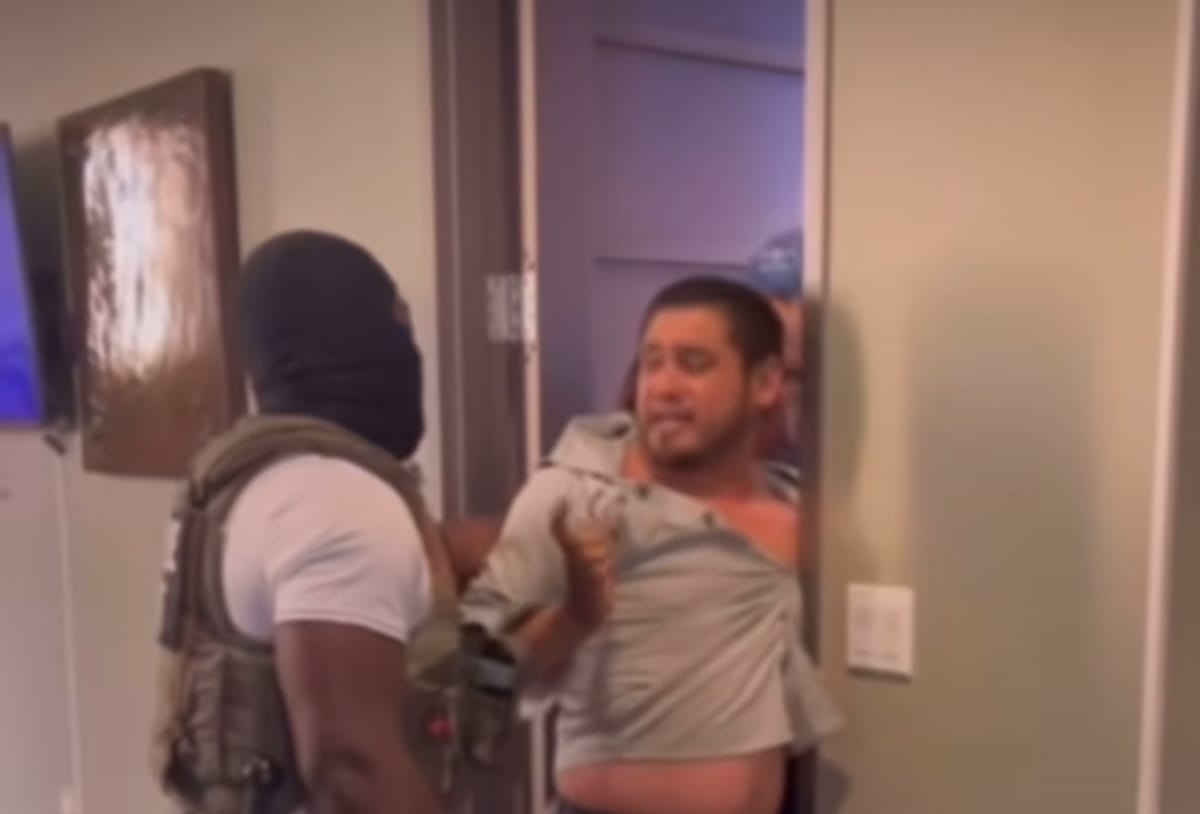Uptick in immigration arrests, raids has Inland Empire on high alert
Immigration arrests and raids are increasing across the Inland Empire, targeting day laborers and sparking rapid response efforts from community groups. Advocates say the crackdown is harming local economies and spreading fear.

Immigrant rights advocates across the Inland Empire say federal immigration agents have intensified their presence, targeting day laborers and other workers without criminal records in cities like Montclair, Ontario, Riverside and San Bernardino.
One of the most visible arrests happened Tuesday, when 30-year-old Honduran gardener Dennis Guillen was detained at the Ontario Advanced Surgery Center. Witnesses say he fled inside after spotting ICE agents, who followed him in. Nurses at the clinic demanded a warrant, but none was presented.
In response to my inquiry for KVCR, the Department of Homeland Security claimed Guillen was evading officers and alleged clinic staff assaulted agents. Clinic administrators declined to comment.
Javier Hernandez of the Inland Coalition for Immigrant Justice says communities will continue deploying Rapid Response teams at known ICE hotspots.
“We try to the best of our abilities and to the best of our capacity,” he said, “to really meet the needs of these families that are affected by these detention and deportations as well.”
Day laborer sites hit hard by raids. Observers and workers vow to protect one another
Since June, day laborer sites have been under heightened surveillance by Rapid Response networks, especially Home Depot stores. Raids earlier this week at locations in Riverside and San Bernardino led to more than a dozen arrests, according to the Pomona Economic Opportunity Center (PEOC) and the Inland Coalition for Immigrant Justice.
Jornaleros (day laborers) at the Riverside Home Depot say Border Patrol agents began by arresting workers at a taco stand across the street before moving into the parking lot.
One worker, who declined to share his name, said he was inside his truck when he witnessed the chaos unfold.
“I was here inside my work truck, that’s when I saw more workers running away,” he said. “Then suddenly there was a white truck that got in front of me and three agents got out with firearms. Then another black Suburban appeared. At that point, I said, ‘If he tries to block me off, I have no choice but to try to ram through it.’”
He emphasized that if agents identified themselves clearly, workers would likely comply. But when they appear suddenly and aggressively, the situation feels like a kidnapping.
“If they come up to my truck and break my window to try to get me, just like they don’t know me, I don’t know them," he said. "I don’t know if they’re immigration or kidnappers. I have to save my life. Now, if it’s clear it’s Border Patrol and they identify themselves, some folks might run, but I think most workers respect that and will comply. But if they treat us like criminals, it’s not fair for us.”
“It’s true. We don’t have papers, we are undocumented, but we’re simply here to work and make a living.”
Fannely Millan of PEOC says her organization has tracked these actions since President Trump’s inaugaration in January. She returned to the Riverside Home Depot following the raid on Wednesday, distributing Know Your Rights cards and checking in with workers about detained family and friends.
“We’re not going to be able to prevent every raid or be at every raid,” said Millan. “Not unless we get help from our community.”
She says she's out there nearly every week because of her own immigrant roots.
"My family had to leave my home country due to safety reasons, and many of these workers share my same story," Millan said. "Day laborers, citizens, asylum seekers and undocumented people alike make America what is. We have to respect that this is a country of immigrants."
Caleb Soto, worker rights director with the National Day Laborer Organizing Network (NDLON), says his group is working with PEOC to launch a national campaign calling out ICE raids on Home Depot properties. The company has yet to respond to a formal letter.
Soto believes the April raid in Pomona, where nearly a dozen workers were arrested, was a precursor to the more aggressive tactics being deployed now.
“They saw Pomona as a place they could target," he said. "Now it’s happening daily. These aren’t isolated incidents: this is a coordinated program of terror.”
'Elections have consequences' on what Trump's policies could mean for immigrants and the larger Inland Empire economy
Paul Granillo, head of the Inland Empire Economic Partnership, worries the recent surge in enforcement could have lasting economic consequences in a region where industries like construction, farming and food service depend on immigrant labor.
“Elections have consequences,” said Granillo. “What we’re seeing now is a strain away from what [President Trump] ran on, with negative potential impacts for regions like the Inland Empire.”
Granillo said workers coming to the U.S. often want only to support their families, not stay permanently — but the current system gives them few options.
“There’s a need for hundreds of thousands of workers, but only about 70,000 visas available each year,” he said. “So your food’s going to get more expensive. Construction will slow. Health care access will shrink. Because there’s nobody else to do this work.”
